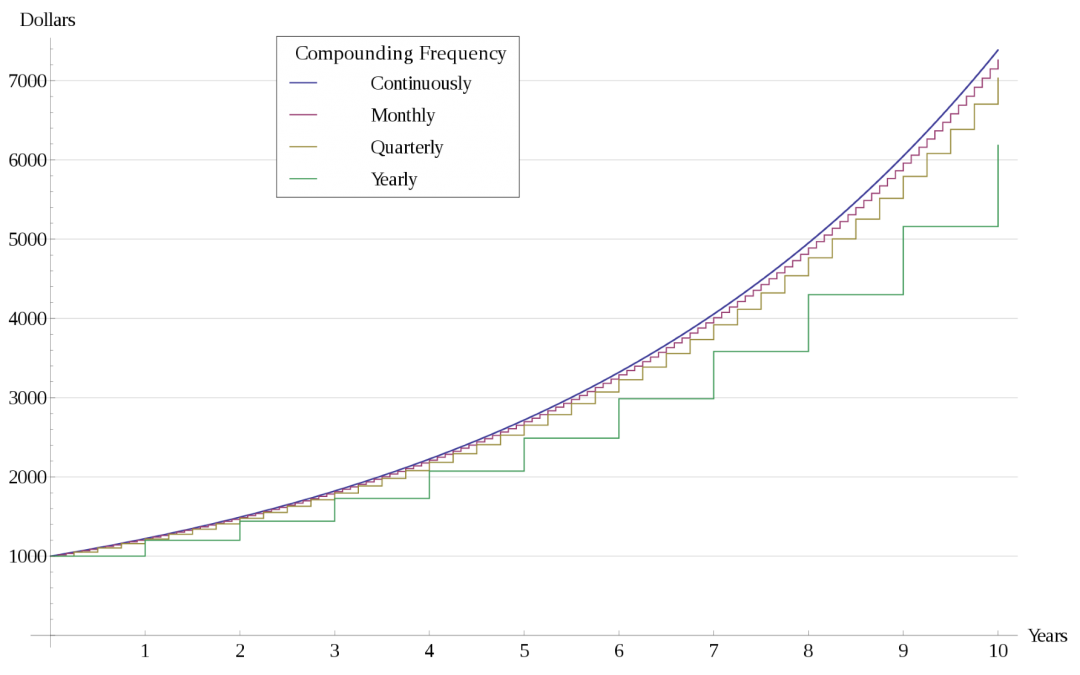
by Alan Wheatley | 19 Oct 2020 | Decoders, Donald Trump, Economy, Educators' Catalog, Joe Biden, World
On any day, the stock market can go up or down. But in the long run, a young person cannot afford to ignore the chance to invest in company shares. The effect of compound interest, with an initial investment of $1,000 and 20% annual interest, compounded at various...
Alan Wheatley’s article on stock markets touches on concepts of tremendous long-term importance to young people, such as compounded interest and interest rates. Wheatley has decades of experience covering international finance, and it shows as he connects investing fundamentals with economic growth and the current U.S. political situation. The article finishes with questions that can be taken up in a wide range of classrooms: Who would be better for stock markets — Trump or Biden? If you have $1,000, should you spend or save it? And why is Wall Street near a record high during the coronavirus pandemic? With Wheatley explaining matters, there’s no reason why economics should be “the dismal science”!
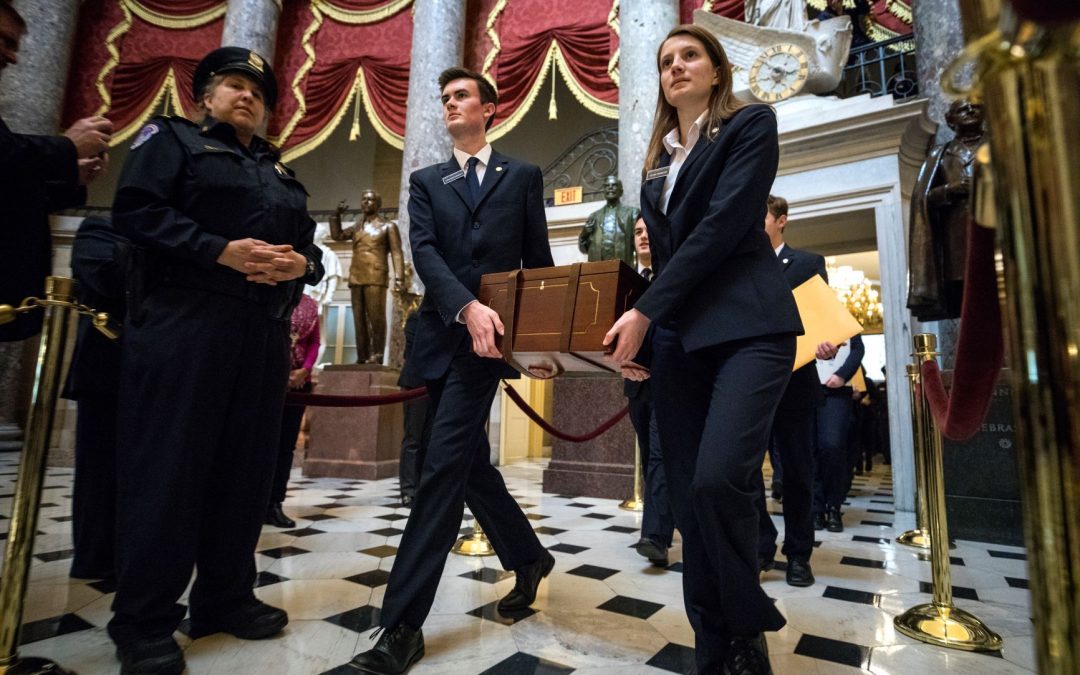
by Bernd Debusmann | 14 Oct 2020 | Americas, Decoders, Donald Trump, Educators' Catalog, Future of Democracy, Government, Joe Biden, Politics, World
A candidate can win the U.S. presidency without winning the most votes. Americans don’t like the Electoral College, but it seems here to stay. Senate pages carry presidential electoral ballots to a joint session of Congress, Washington, DC, 6 January 2017....
To understand our world of today, students need to know where we came from. But history in a vacuum can be a turnoff if it’s not connected to current events. Bernd Debusmann’s decoder offers a historical look at the curious institution of the U.S. Electoral College, while connecting the dots to today’s political events in that country. The article links to documents that open the door to further study and poses three questions at the end that are fodder for classroom discussion.
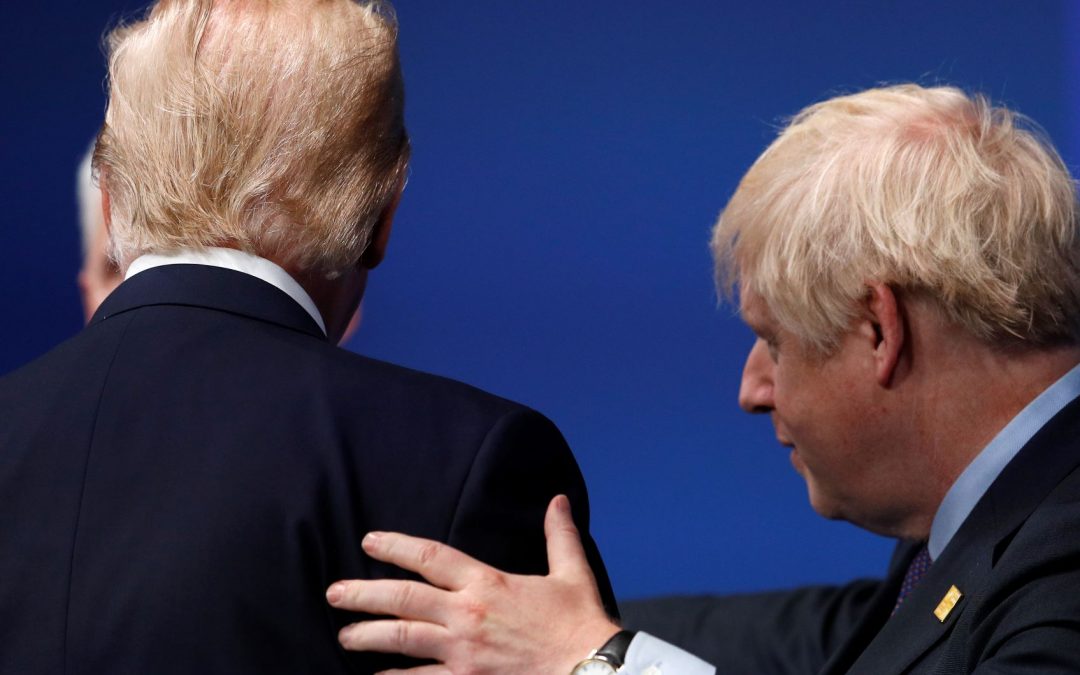
by Alexander Nicoll | 12 Oct 2020 | Americas, Donald Trump, Europe, Government, Immigration, Nationalism, Politics, World
Donald Trump and Boris Johnson won power as populists, backed by angry voters. Now COVID-19 is exposing their shortcomings in the U.S. and UK. British Prime Minister Boris Johnson (R) and U.S. President Donald J. Trump (L) in London, 4 December 2019 (EPA-EFE/PETER...
by Jim Wolf | 23 Sep 2020 | China, Conflict, Decoders, Donald Trump, Educators' Catalog, United States, World
They are the world’s two most powerful economies, deeply interlocked. But China and the U.S. are increasingly at odds — with vast implications. A Taiwanese Air Force fighter in the foreground flies on the flank of a Chinese bomber as they pass near Taiwan, 10...
The relationship between China and the United States will have a profound impact on the lives of today’s students. In his examination of the bilateral relationship, Jim Wolf reviews the fraught history between China and the West, and looks at the two nations’ current leaders and how their agendas are radically at odds. Wolf eschews the bias that can creep into reporting on China by Western correspondents. This tour d’horizon offers students a starting point for deeper examination of the forces — economic, military, geographic, political — that will shape the world they will inherit.
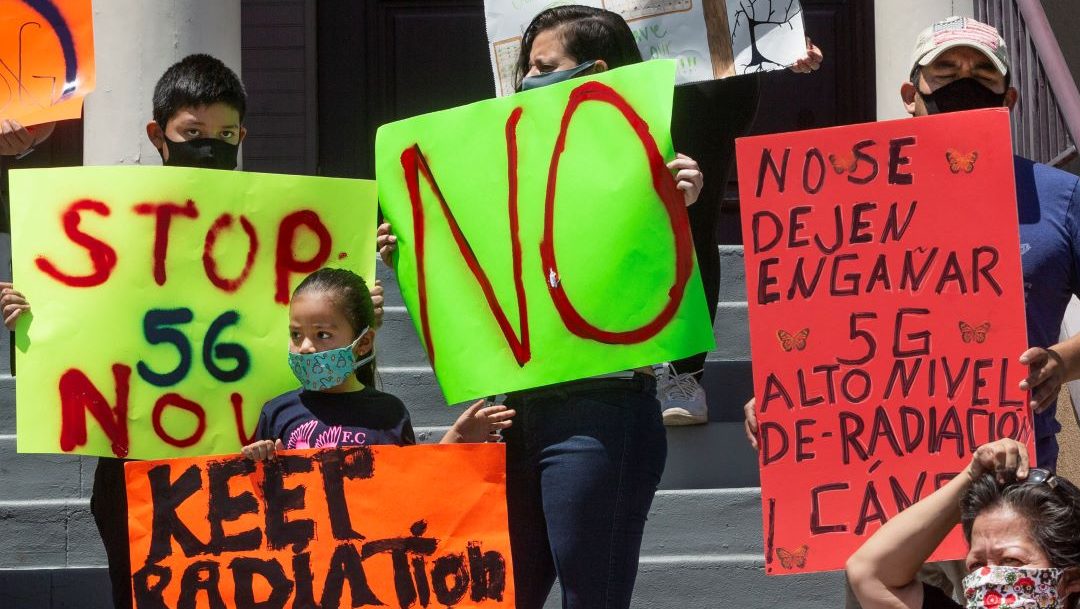
by Sarah Edmonds | 1 Sep 2020 | Donald Trump, Educators' Catalog, Health and Wellness, World
They’ve been around for a long time and flourish in a crisis. Conspiracy theories may seem absurd and harmless to some — but they can do damage. Activists demonstrate against 4G/5G cell towers in Los Angeles, California, 2 May 2020. (AP Photo/Damian...
Like fake news, conspiracy theories abound in today’s polarized political world. Sarah Edmonds shows that they have been around for a long time and thrive in times of crisis such as the coronavirus pandemic. In an age when facts and science are under attack, how can a student know what to believe in? Should we simply dismiss those who perpetrate conspiracy theories — or engage with them? Edmonds interviewed numerous experts for her article and skilfully weaved in their quotes — a good example for student writers. Teachers of subjects from Science to Politics can use Edmonds’s story to encourage students to suspend their prejudices and push themselves to see contrasting viewpoints.
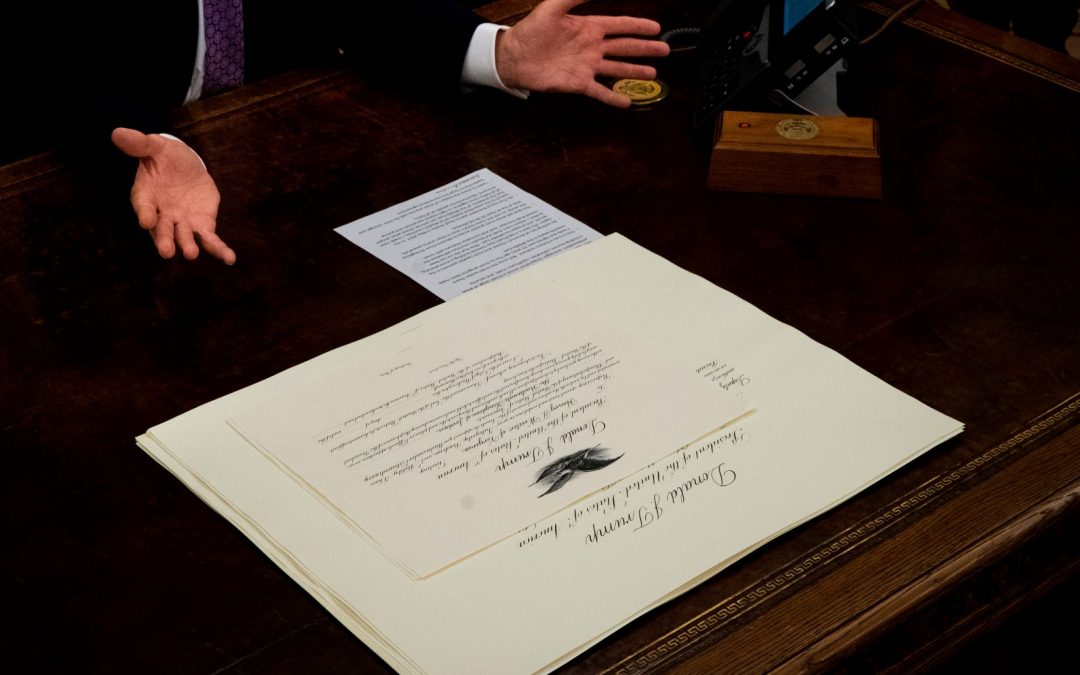
by Bernd Debusmann Jr | 31 Aug 2020 | Conflict, Donald Trump, Middle East
Donald Trump has scored few foreign policy wins with his transactional approach. A peace deal between Israel and the UAE is a feather in his cap. U.S. President Donald Trump announces a peace agreement between Israel and the United Arab Emirates, Washington, DC , 13...
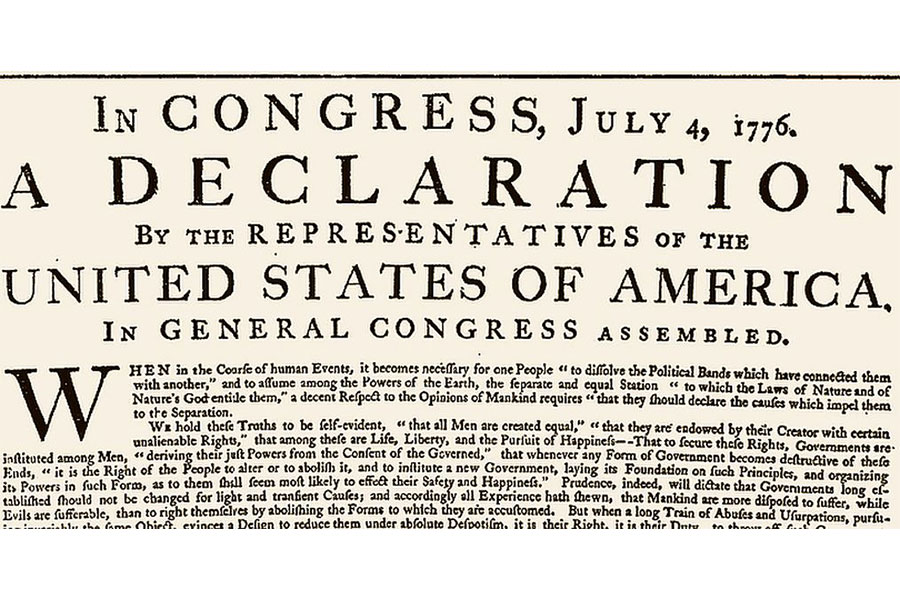
by Nelson Graves | 16 Jul 2020 | Donald Trump, Fake News, Media Literacy
Propaganda, advertising, political spin, storytelling — fake news can take many shapes. It got its start a long time ago, and there’s no quick fix. The U.S. Declaration of Independence (Wikipedia) This article is adapted from keynote remarks that were to...

by Harvey Morris | 13 Jul 2020 | Donald Trump, Joe Biden, United States
We foreigners often scoff at Americans. But like it or not, the world always pays rapt attention to the U.S. election, and this year is no exception. President Barack Obama, right, presents the Presidential Medal of Freedom to Barbra Streisand, White House, 24...
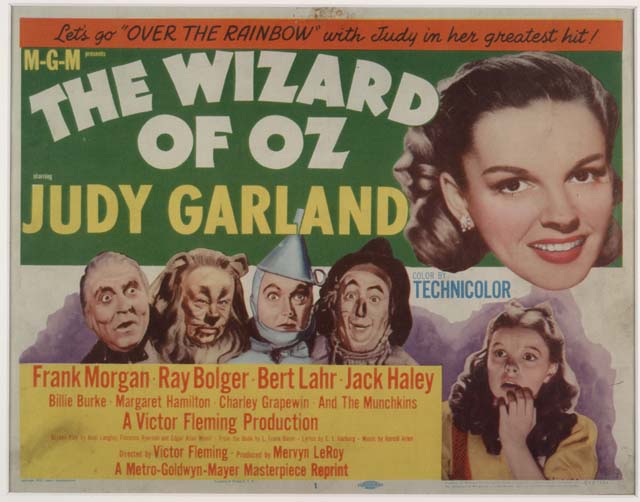
by Hannah Pell | 30 Jun 2020 | Donald Trump, Fake News, Youth Voices
Dorothy’s adventures in ‘The Wizard of Oz’ offer more than fantasy for children. Like the wizard behind his curtain, politicians world-wide deal in deceit. A film poster for the 1955 re-release of The Wizard of Oz (1939) (Wikimedia Commons) Can a...
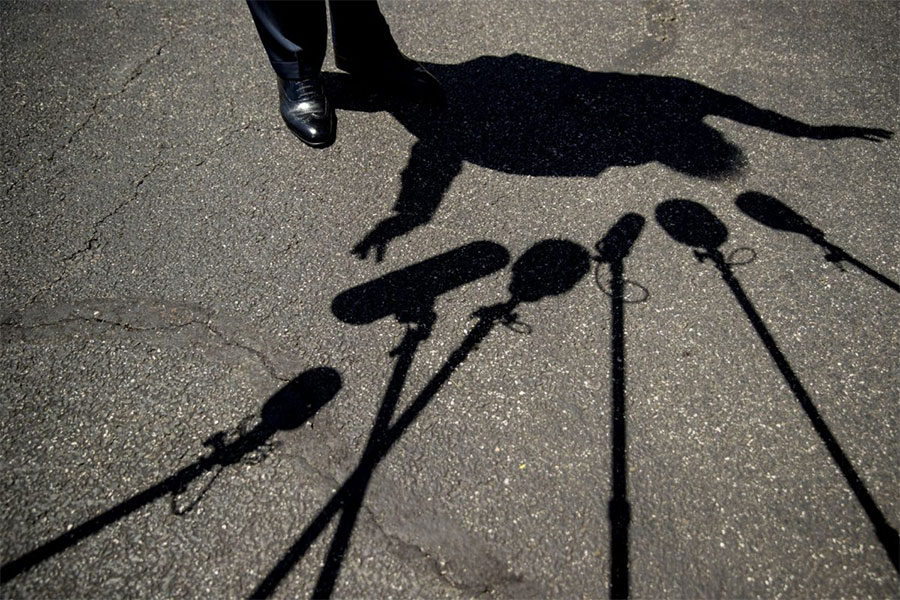
by Jonathan Lyons | 24 Jun 2020 | Donald Trump, Media Literacy
U.S. presidents have often twisted the truth. But Donald Trump has flooded the media with falsehoods in a unique challenge to democratic institutions. U.S. President Donald Trump outside the White House in Washington, 24 May 2019 (AP Photo/Andrew Harnik) Donald Trump,...









